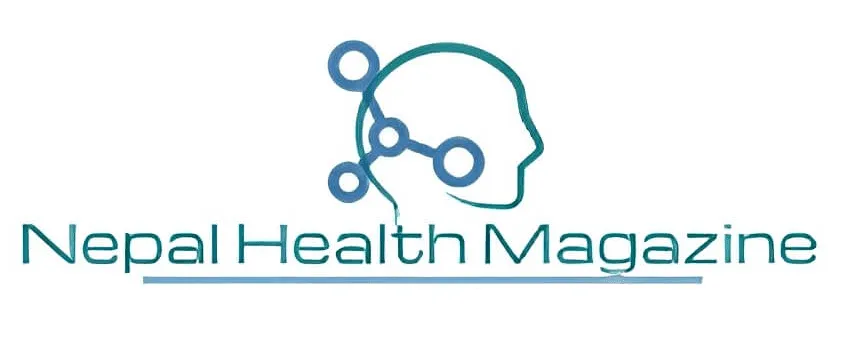Zinc Supplements during pregnancy :Nutritional interventions update| WHO : Evidence from a systematic review on antenatal zinc supplementation was evaluated as part of the World Health Organization (WHO) antenatal care (ANC) guideline development process in 2016, and the following recommendation on zinc supplementation was made: “Zinc supplementation for pregnant women is only recommended in the context of rigorous research.” The Guideline Development Group (GDG) made this recommendation because it felt that the evidence on the intervention was incomplete and that more research was necessary.
Since the publication of the systematic review, four additional randomized controlled trials have been published; therefore, in April 2019, the Executive Guideline Steering Group (GSG) prioritized the WHO recommendation on antenatal zinc supplementation for updating.
Zinc is a trace element found in many foods, particularly in meat, but also in dairy products, legumes and unrefined cereals. It plays an important role in many biological processes that contribute to human growth and development, and also to immunity. As it is not stored in the body, it needs to be consumed regularly to prevent zinc deficiency, which is particularly common in low- and middle-income countries, where dietary intake of zinc rich foods is often low. However, the effects of zinc deficiency in pregnancy have not been clearly established. In January 2021, a WHO-convened GDG comprising most of the 2016 GDG members re-evaluated the evidence on antenatal zinc supplementation, updating the recommendation on zinc in accordance with WHO’s living guidelines approach.
Outcomes of interest in antenatal care nutritional intervention

Positive Impacts of Zinc | Zinc Supplements during pregnancy :Nutritional interventions update| WHO
Maternal outcomes
Pre-eclampsia: The evidence suggests that zinc supplementation may make little or no difference to pre-eclampsia compared with no zinc supplements (six trials, 2568 women; risk ratio, RR, 0.93, 95% confidence interval, CI, 0.62 to 1.42; low-certainty evidence, downgraded due to design limitations and imprecision).
Maternal infection: The evidence suggests that zinc supplementation may make little or no difference to maternal infection compared with no zinc supplements (four trials, 1891 women; RR 0.94, 95% CI 0.72 to 1.23; low-certainty evidence, downgraded due to design limitations and imprecision).
Side-effects: Side-effects were not generally reported in trials.
The evidence on caesarean section was of very low certainty and there were no relevant data on maternal anaemia, maternal mortality, gestational diabetes mellitus or positive pregnancy experience.
Fetal/neonatal outcomes
Small for gestational age: Zinc supplementation probably makes little or no difference to the small for gestational age outcome compared with no zinc supplements (nine trials, 5330 babies; RR, 1.02, 95% confidence interval, CI, 0.92 to 1.12; moderate-certainty evidence, downgraded due to design limitations).
Low birthweight: Zinc supplementation probably makes little or no difference to low birthweight compared with no zinc supplements (17 trials, 7399 babies; RR 0.94, 95% CI 0.79 to 1.13; moderate-certainty evidence, downgraded due to design limitations).
Preterm birth: Zinc supplementation probably makes little or no difference to preterm birth compared with no zinc supplements (20 trials, 9454 babies; RR 0.90, 95% CI 0.78 to 1.04; moderate-certainty evidence, downgraded due to design limitations).
Neonatal mortality: Zinc supplementation may make little or no difference to neonatal mortality compared with no zinc supplements (three trials, 1965 babies; RR 2.24, 95% CI 0.40 to 14.83; low-certainty evidence, downgraded due to design limitations and imprecision).
Stillbirth: Zinc supplementation may make little or no difference to stillbirth compared with no zinc supplements (six trials, 2898 babies; RR 1.32, 95% CI 0.85 to 2.04; low-certainty evidence, downgraded due to design limitations and imprecision).
Perinatal mortality: Zinc supplementation may make little or no difference to perinatal mortality compared with no zinc supplements (two trials, 2489 babies; RR 1.10, 95% CI 0.81 to 1.51; low-certainty evidence, downgraded due to design limitations and imprecision).
Congenital anomalies: Zinc supplementation may make little or no difference to congenital malformation compared with no zinc supplements (five trials, 1106 babies; RR 0.67, 95% CI 0.33 to 1.35; low-certainty evidence, downgraded due to design limitations and imprecision).
Neonatal infection: Zinc supplementation may make little or no difference to neonatal sepsis compared with no zinc supplements (two trials, 736 babies; RR 0.17, 95% CI 0.03 to 1.01; low-certainty evidence, downgraded due to design limitations and imprecision).
WHO recommendation on antenatal zinc supplementation
- This GDG( Guideline Development Group )agreed to retain the WHO recommendation found in the 2016 WHO ANC guideline (8).
- WHO does not recommend zinc supplementation as part of routine ANC. Zinc supplementation is recommended only in the context of rigorous research to improve our knowledge of its effect in pregnant women. Research is particularly needed on how zinc status is impacted by other nutritional supplementation (e.g. iron and/or calcium) given as part of routine ANC. Additionally, research is needed on the efficacy of zinc supplementation – provided either alone or with other nutritional supplements (e.g. iron and folic acid, calcium, according to national guidelines/standard of care) – on maternal and neonatal outcomes. Multiple doses of zinc, iron and/or calcium may need to be evaluated based on the current national standard of care. Research on the effectiveness or the implementation of zinc supplementation is not identified as a priority at this time.
- Pregnant women should be encouraged and supported to receive adequate nutrition, which is best achieved through a healthy, balanced diet, and to refer to guidelines on healthy eating

- Webinar on World Hand Hygiene | Register today
- World’s First 5-in-1 vaccine against meningitis | Men5CV
- World Health Worker Week 2024 | Know theme
- World Autism Awareness Day 2024 | Know theme
- Staff Nurse | OCH | latest jobs vacancy 2024
- World Hepatitis Summit 2024 | WHO
- Staff Nurse | TLMN | ngo jobs 2024
- World Health Day 2024 | Know theme
- Measuring access to assistive technology in Nepal | Country Report
- Migration Health Nurse | IOM | ingo jobs
- Nursing Officer | Kopila Valley | nursing jobs 2024
- Benefits and risks of using artificial intelligence for pharmaceutical development and delivery | WHO
bachelor jobs bph jobs covid19 health health for all health guidelines new health jobs healthjobs healthjobs in nepal health jobs vacancy health public health update ingo jobs jobs after passing bachelor jobs for bph jobs in nepal jobs in ngo ngo jobs ngo jobs vacancy ngo jobs vacancy for bph ngo job vacancy 2021 nurse jobs nurse jobs 2021 nurse vacancy nursing insurance nursing job nursing jobs nursing jobs 2021 nursing jobs in nepal nursing law nursing officer Nursing Vacancy Public health Public health concern public health important days Public health in Nepal publichealth jobs public health updated Staff Nurse Staff Nurse and HA Vacancy | Nepal Army 2021 staff nurse vacancy staff nurse vacancy in ngo 2021 nepal staff nurse vacancy kathmandu who guidelines WHO official

Hey there, I am Nirdesh Baral, founder of Nepal Health Magazine. I am a Tech geek by passion , Public health practitioner by profession and an Ailurophile by heart and a patriot by birth



